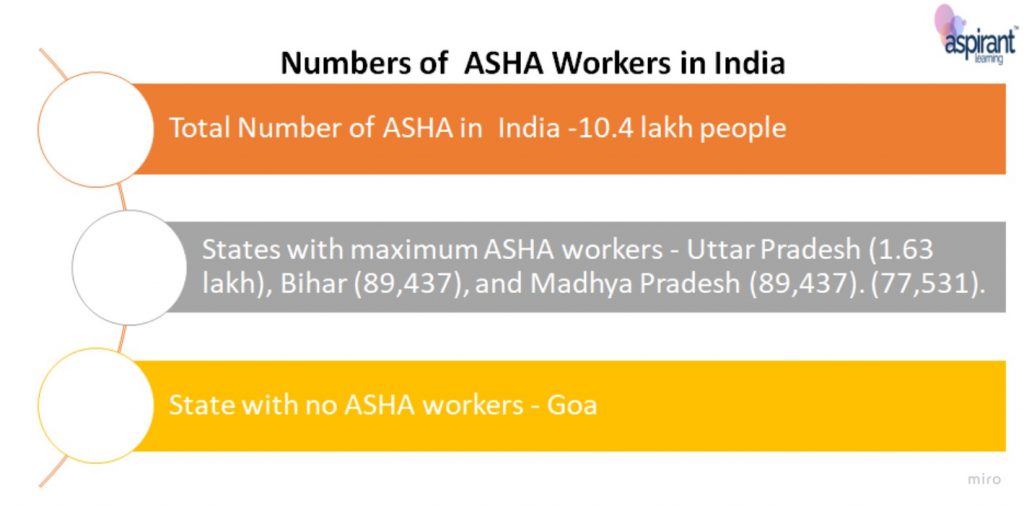News Highlights
In the context of the 75th World Health Assembly, ASHA (Accredited Social Health Activist) workers have been awarded the Global Health Leaders Award-2022.
ASHA Workers
- ASHA workers are community volunteers who have been trained to provide information and assist individuals in obtaining benefits from the government’s different healthcare programmes.
- They provide a link between marginalised populations and resources like primary health centres, sub-centers, and district hospitals.
- The National Rural Health Mission (NRHM) established the function of these community health volunteers in 2005.
- ASHAs are primarily community-based married, widowed, or divorced women between the ages of 25 and 45.
- Eligibility
- They must be literate, with formal education up to Class 8, and have good communication and leadership abilities, according to the programme requirements.
Numbers of ASHA Workers in India

Function of ASHA Workers
- They walk door-to-door in their respective districts, spreading information about basic nutrition, hygiene, and health services.
- They primarily focus on ensuring that women receive ante-natal care, maintain nutrition during pregnancy, give birth in a medical institution, and receive post-partum training on breast-feeding and complementary nutrition for their children.
- They also offer advice on contraception and sexually transmitted illnesses to women.
- ASHA personnel are also responsible for assuring and motivating youngsters to receive vaccinations.
- ASHA workers deliver daily medicines to TB patients under the national program’s direct observation treatment, in addition to mother and child care.
- During the season, they are also responsible for checking for illnesses such as malaria.
- They also give essential medicines and therapies, including as oral rehydration solution, chloroquine for malaria, iron folic acid tablets to prevent anaemia, and contraceptive pills, to those within their control.
- The health volunteers are also responsible for reporting any births or deaths in their specified areas to their respective primary health centres.
Payment for ASHA Workers
- Governments are not required to pay them a salary because they are considered “volunteers.” And the majority of states don’t.
- Their income is based on several programmes that provide incentives for things like ensuring an institutional birth or getting a child immunised. All of this comes to around Rs 6,000 to Rs 8,000 each month.
Way Forward
- ASHA workers play a vital role in ensuring the reach of health benefit to poor people of India so they needed to be given more incentivizes.



